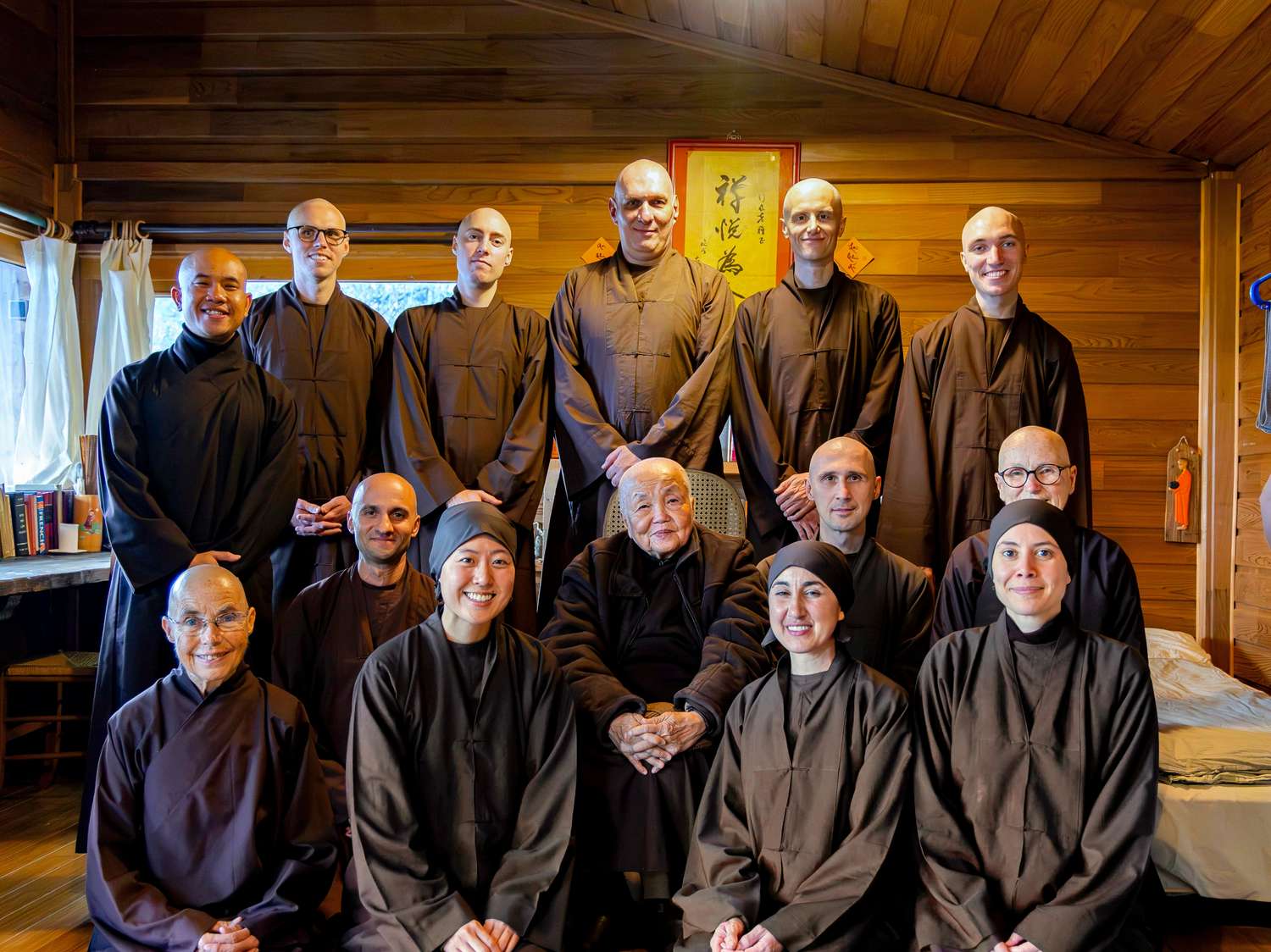Greeting the Dawn
Interview with the Daffodil ordination family
On 5 November 2023, ten young people shed their hair to become novice monks and nuns of the Daffodil ordination family in Plum Village France. The editorial team had a chance to interview them after their ordination to learn about their journeys, transformations, challenges, and aspirations.
Editorial team: Could you share with us how you came to realize, “This is it! This is the path that I have been looking for.”
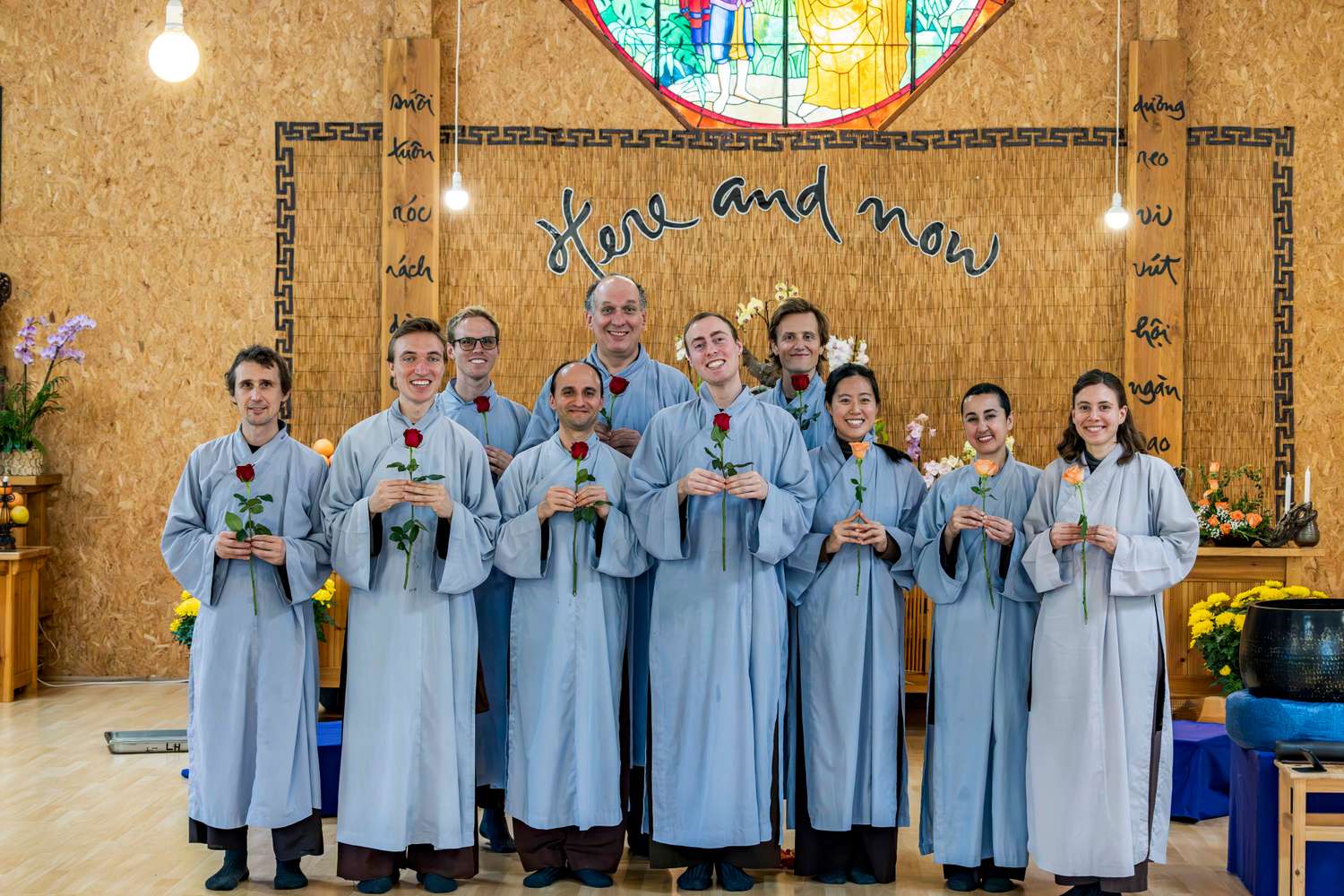
Br. Nhat Nguyen (True Source of Oneness): When I found Thay and started to meditate — that was one and a half years before I first came to Plum Village — I quickly enjoyed the benefits of meditation, finding calm in my body. In the book, You Are Here, Thay explains interbeing, and I immediately felt it was the most beautiful thing I’ve ever heard. Those two made me feel I found my path in life, a big bright path for me!
Before, I had never felt like having a clear path. I often acted out of fear and stress, trying to survive in the world. But this path was just there for me to walk very calmly and joyfully. The feeling was very much one of letting go of fear. Deciding to become a monastic felt very light and freeing.
Br. Nhat Moc (True Tree of Oneness): To make a long story short; I read many of Thay’s books and I felt I wanted to become a monk, even though I had never been to Plum Village. I thought, even if Plum Village is only half as good as I think it is from reading the books, it’s still the place I want to become a monk at. So on the first day of being in Plum Village, I said, “I want to become a monk here. This is the place.”
Editorial team: We remember you approached one of us, (enthusiastically) “I wanna become a monk, how do I do it.” And we said: “OK. OK. Arrive first.” (laughter)
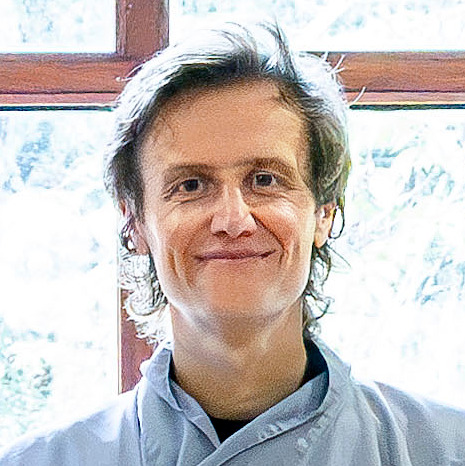
Br. Nhat Thanh (True Clarity of Oneness): In 2019/2020, I was a long-term at Healing Spring Monastery for nine months. Following that, I became a resident at a Tibetan meditation center in Belgium for two years (Les Jardins de Méditation de Samyé). I came to Plum Village to volunteer for the 40th anniversary of Plum Village retreat , and have been staying at Upper Hamlet since then. I was in love with the Dharma and with Thay’s teachings and presence, but becoming a monastic was not obvious to me yet. After attending the class for those with an aspiration to ordain and receiving encouragement from friends, I thought I could do it. Given my history of anxiety/fear and difficulty making commitments, I was at first a bit uneasy with the lifetime monastic commitment. However, after sharing more with some brothers, I felt more at ease.
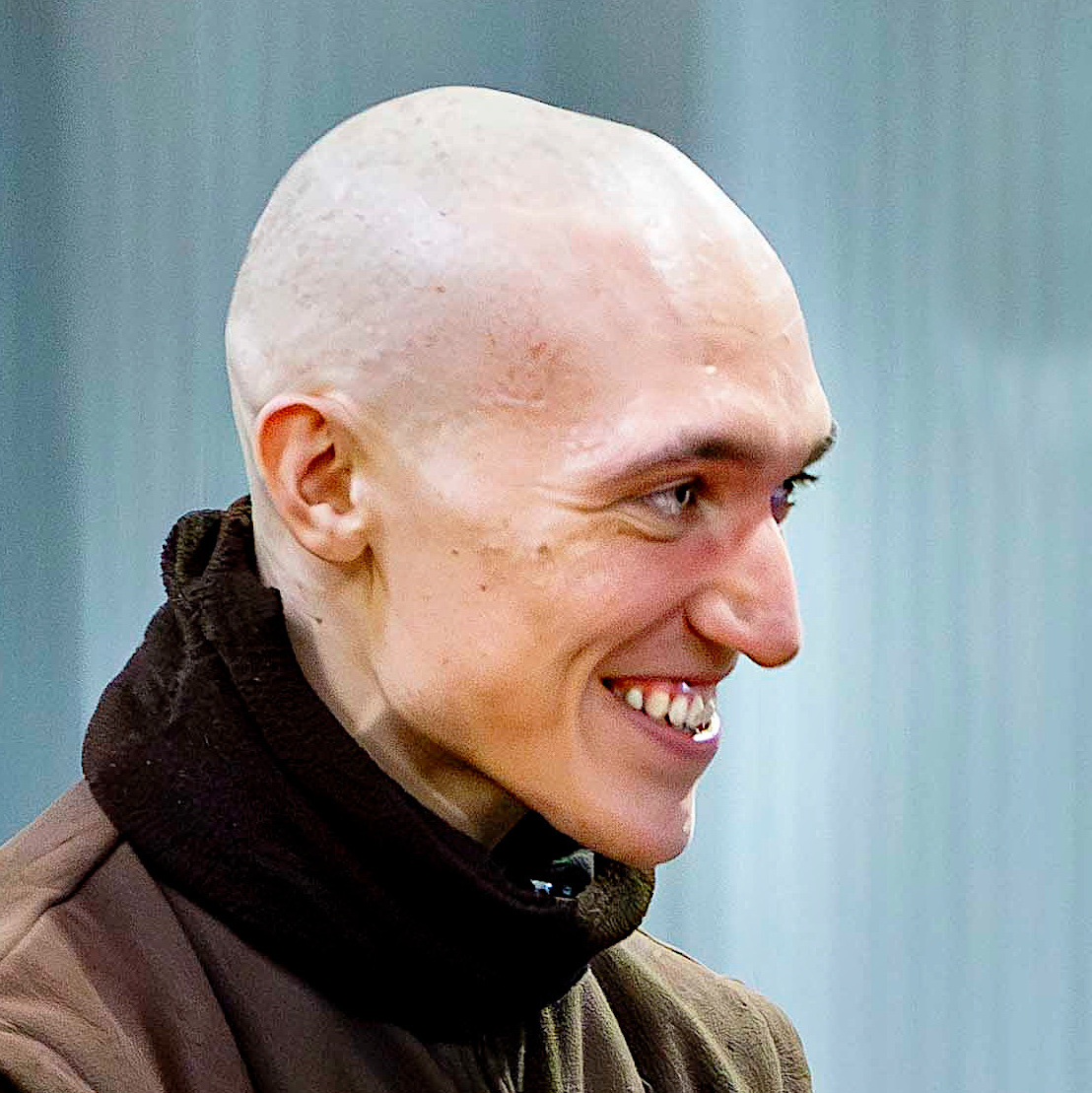
Br. Nhat Xuan (True Spring of Oneness): One and a half years ago, I practiced in Plum Village as a long-term. Knowing Thay’s teachings, I had already let go of many different things, e.g. relationships that were not conducive to my well-being. I was only 20 years old at the time, and so saying I wanted to become a monk was quite a statement. It was also important for me that it be accepted by my family. When they came to visit me for my birthday in April, I allowed them to arrive first, then after one week I sat down with my mom to share that I wanted to become a monk. She was very happy saying, “Wow! This suits you so well.” The same was true for my older brother. He looked at me and hugged me, saying “Wow! Wonderful.” This was a big support, knowing that the people I love the most can support and encourage me.
While as an aspirant, I told myself, “Regardless of whether I get accepted or not, I want to become a monk.” Knowing that I want to continue on the path strengthened my commitment. This was a beautiful moment.
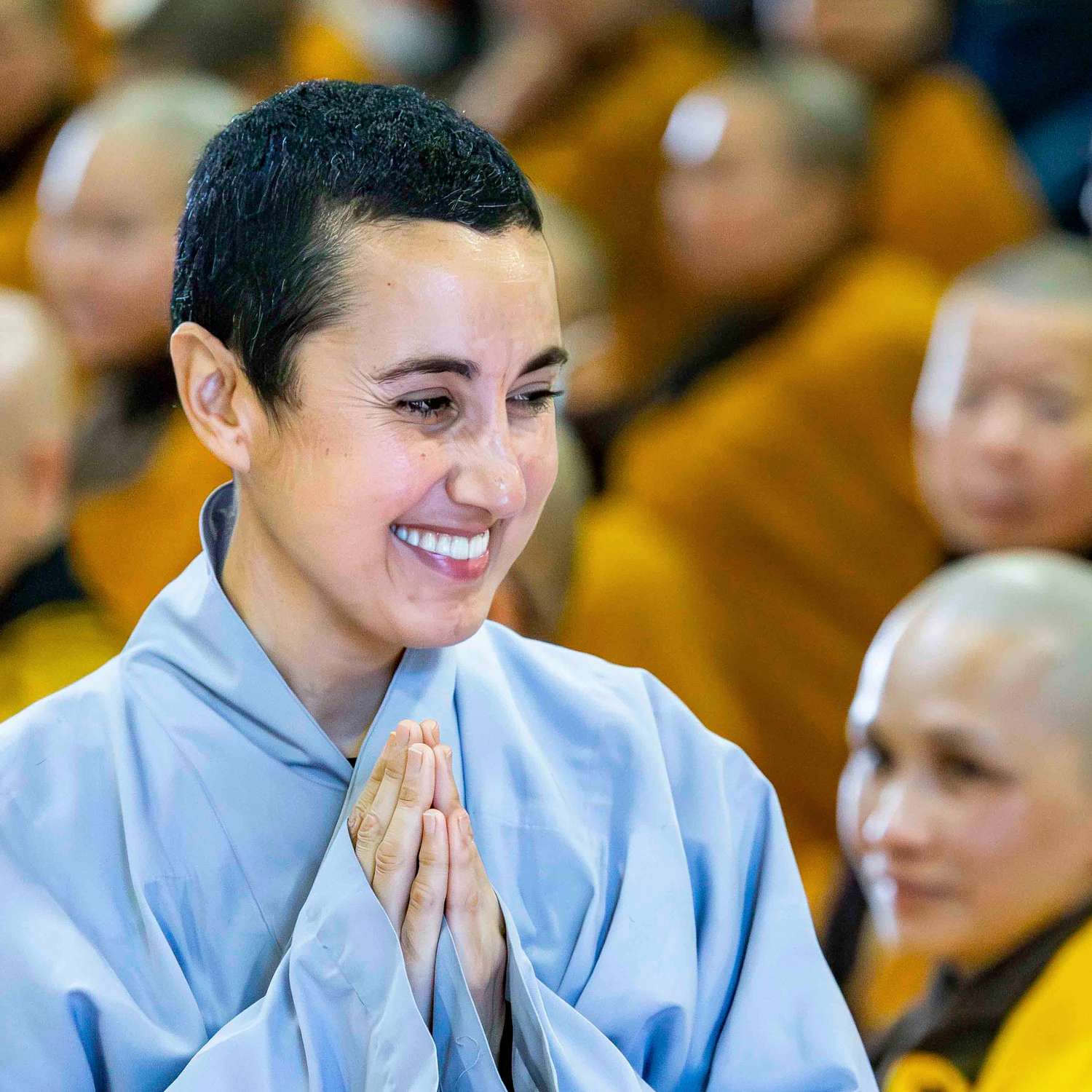
Sr. Don Hanh (True Kind Action; Sr. Don Hanh has come as a monastic from another Zen tradition): When I was 20 years old, I was going through a difficult period in my life and, looking for something to help me rediscover my inner balance, I found a meditation centre in the Japanese Soto Zen tradition in Madrid, my hometown. I remember very well the feeling of peace and joy I felt the first time I sat in zazen. Without having any idea of Buddhism or meditation, I felt somehow that I had finally found what could help me.
I continued to practice assiduously, going every day to the dojo and monthly retreats, and little by little I was able to reestablish an intimate connection with myself and find inner peace and happiness.
Somehow, I fell in love with the practice and the monastic aspiration came naturally. I had found good medicine for me and my greatest desire was to dedicate my life to continuing it and sharing it with all the people who might be going through difficult times in their lives.
I am very grateful to my former teachers in Madrid and in France, as well as to my Sangha, for nurturing the seeds of my monastic aspiration and supporting me on my Path.
Editorial team: But why Plum Village?
Sr. Don Hanh: Thay’s teachings have accompanied me since I was a teenager through his books and Dharma talks, and have always touched my heart directly. They are clear, simple, beautiful and very deep, with concrete practices that respond to the real needs of our world.
On the other hand, because in my former tradition we were only three nuns (the founder of the monastery, the abbess and myself), I have been able to understand the importance of the Sangha and how precious it is. I knew that alone I couldn’t really fulfill my aspiration to transform myself and to serve all beings.
For these two reasons, I decided to take refuge in the Plum Village tradition and… I am very happy!
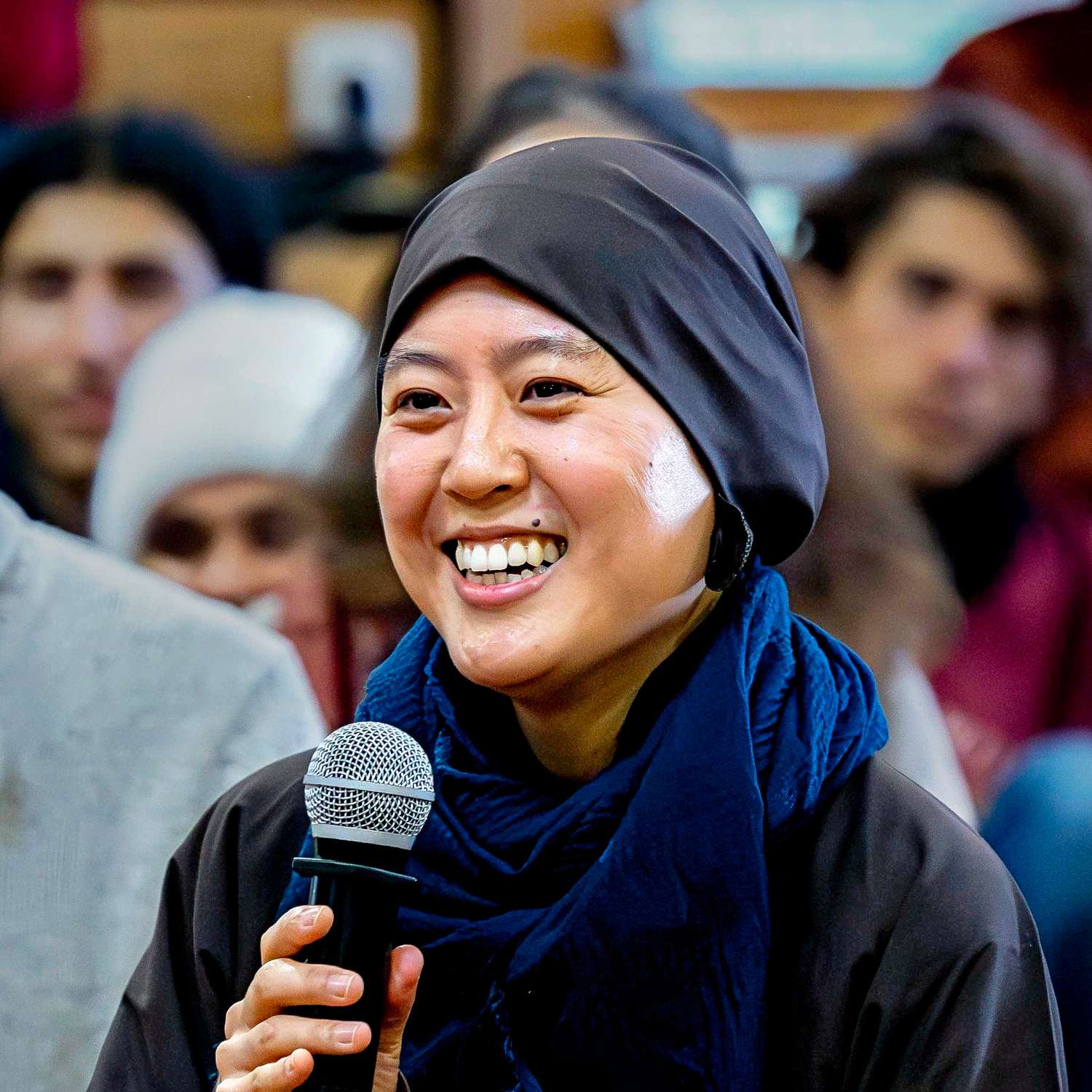
Sr. Dang Hanh (True Radiant Action): I knew clearly for a long time that the practice was going to be a central part of my life. When I was living in New York, I decided that every year I wanted to spend the days around my birthday at Blue Cliff Monastery. I had already read Stepping into Freedom, and even Freedom Wherever We Go. I was attracted to the idea of becoming a nun, but it was still very much an ideal.
After one of my birthdays at Blue Cliff, I remember sitting in the big meditation hall. I reached a place of deep calm and thought, “This is the moment when I can ask a clear question.” I invited Thay to sit with me and I asked, “Dear Thay, I have a happy dilemma. No matter what I choose, the practice will be there, as lay or monastic. But which one shall I choose?” Up until that point I had all these little doubts, e.g. Would I be able to let go of my music, my skirts, and belongings? What if I wanted to travel whenever I want? Would I be OK looking bald? Then there was this booming voice that said, “Darling, you’re focusing on the little doubts and not the great aspiration.” Thay was so clear that I immediately started crying. Relieved, I answered, “Yes, Thay.” Straight away I went to Sr. Gioi Nghiem to ask her how to become a nun.
In the ordination ceremony, when we were waiting to stand up and walk in procession to the altar, I told myself, “Let go of all doubts and step into freedom!” I knew I had wanted this for so long, to the extent that if I died today, I would be happy. I did my best. Everything else was beyond my control. Now there is no more incessant talking in the back of my head saying “Ohh, but…” It is very relieving.
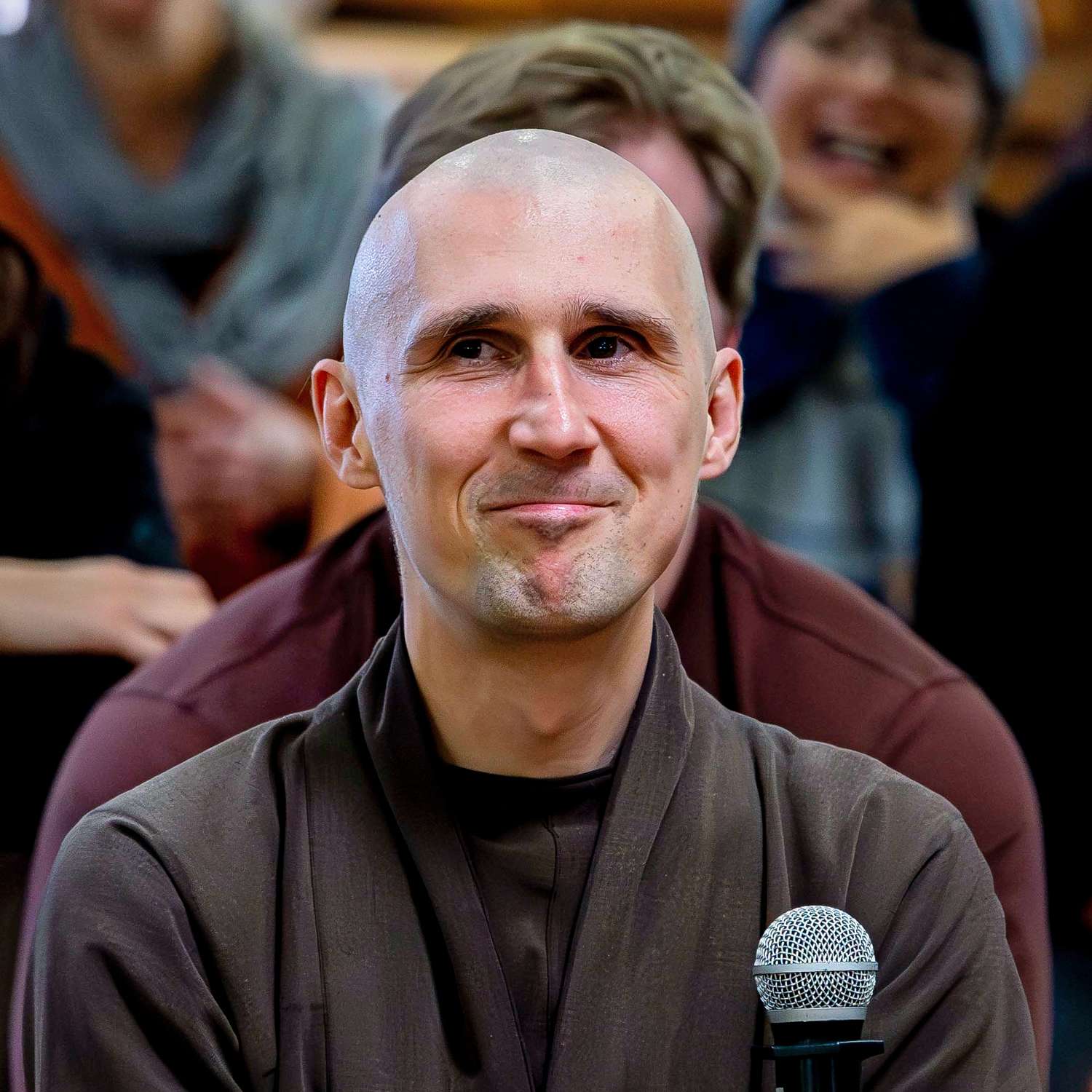
Br. Nhat Luong (True Refreshing Oneness): The question of how I ended up in Plum Village is like a box full of surprises. Already as a young teenager — 20 years ago — I wanted to ordain. I first encountered a Chinese Zen Master from the City of Ten Thousand Buddhas in California. I was very impressed reading his books, but I couldn’t get a visa to enter the US.
So I went to a monastery in Malaysia. It was quite a difficult experience because the culture is so different and the style of Buddhism is very traditional, full of rituals and embellishments. I was a bit disappointed that I didn’t fit in and ended up going back home.
I then tried a monastery in Hong Kong in the mountains outside the city, where I spent three months. It was amazing, but I did not end up staying there either. Then I went to the Thai Forest Tradition in 2012 and ended up ordaining as a novice for four months. But again, I did not fit into the culture, and the way of practice seemed too rigid to me. At some point I could not sleep at night, I became depressed, and ended up leaving.
I took ten years to reevaluate, but even though I opened my mind to things besides Buddhism, the desire to ordain never disappeared. I have since made much more progress and relate to myself in a different way. When Thay passed away — without knowing it — I started crying in meditation, and I asked myself, “Why is this happening, who died?” Then I found out Thay had passed away. I eventually came to Plum Village for a retreat, thinking this could be a good place to ordain.
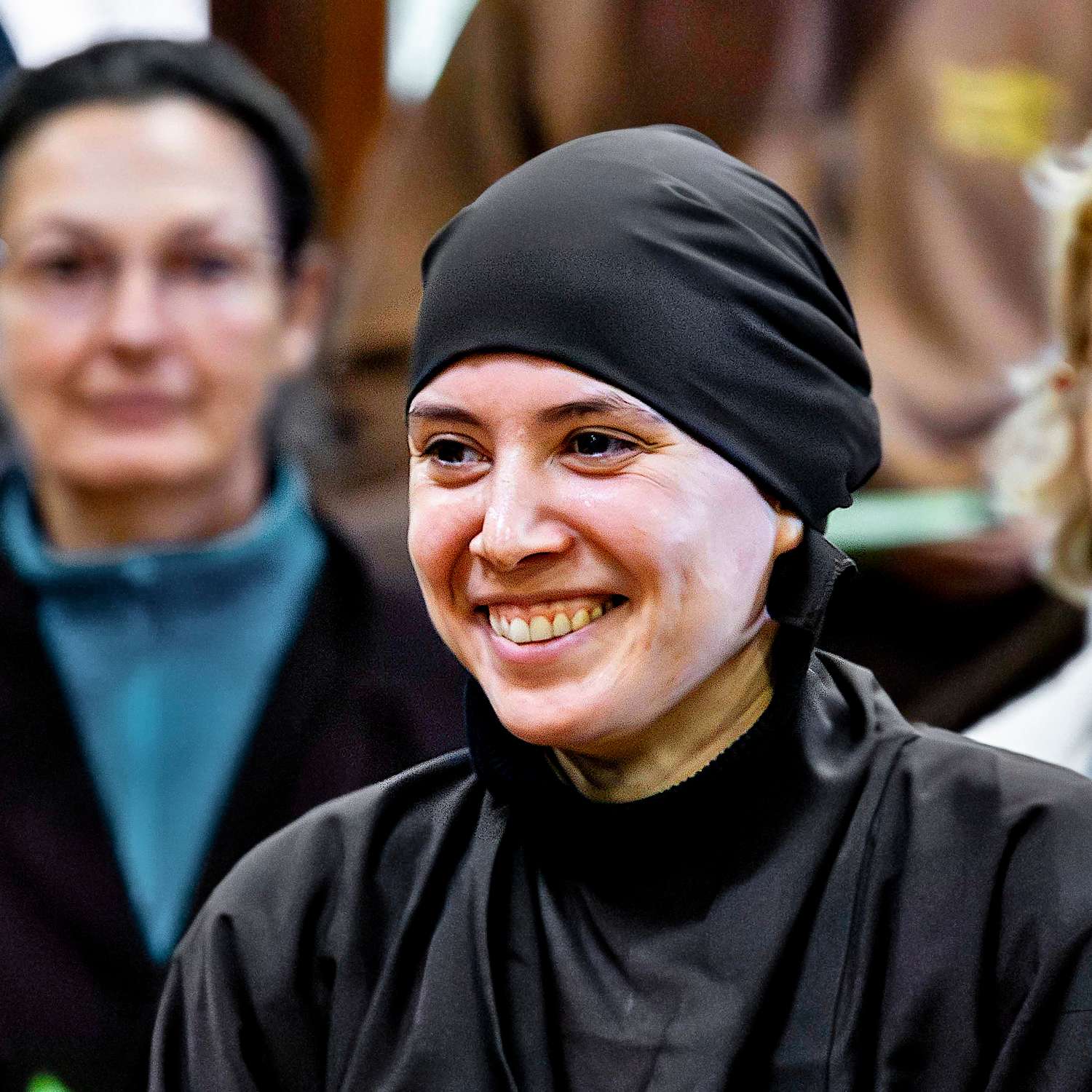
Sr. Dieu Hanh (True Wondrous Action): Seven years ago, I was lucky enough to discover Maison de L’Inspir, and often visited to practise. I also came to Plum Village, especially in the summer and for the Rains Retreat. I don’t exactly know when the wish to ordain came up. I had the strong feeling inside of me that this is really a path that I want to follow, because it helped me so much.
I only saw Thay once in his physical form on my very first retreat. I’ve learned so much about the practice from the Sangha. I really feel the sangha is his continuation and that I would not have learned so much or be here without all the brothers and sisters practising and guiding me and all the love and support I receive.
Unfortunately, my parents are not supportive of me ordaining, and I know it is going to be difficult for them. I practice being patient. After listening deeply to myself it became clear that I would regret not having at least tried to be a nun. I was very happy at the ordination. It felt like a relief.
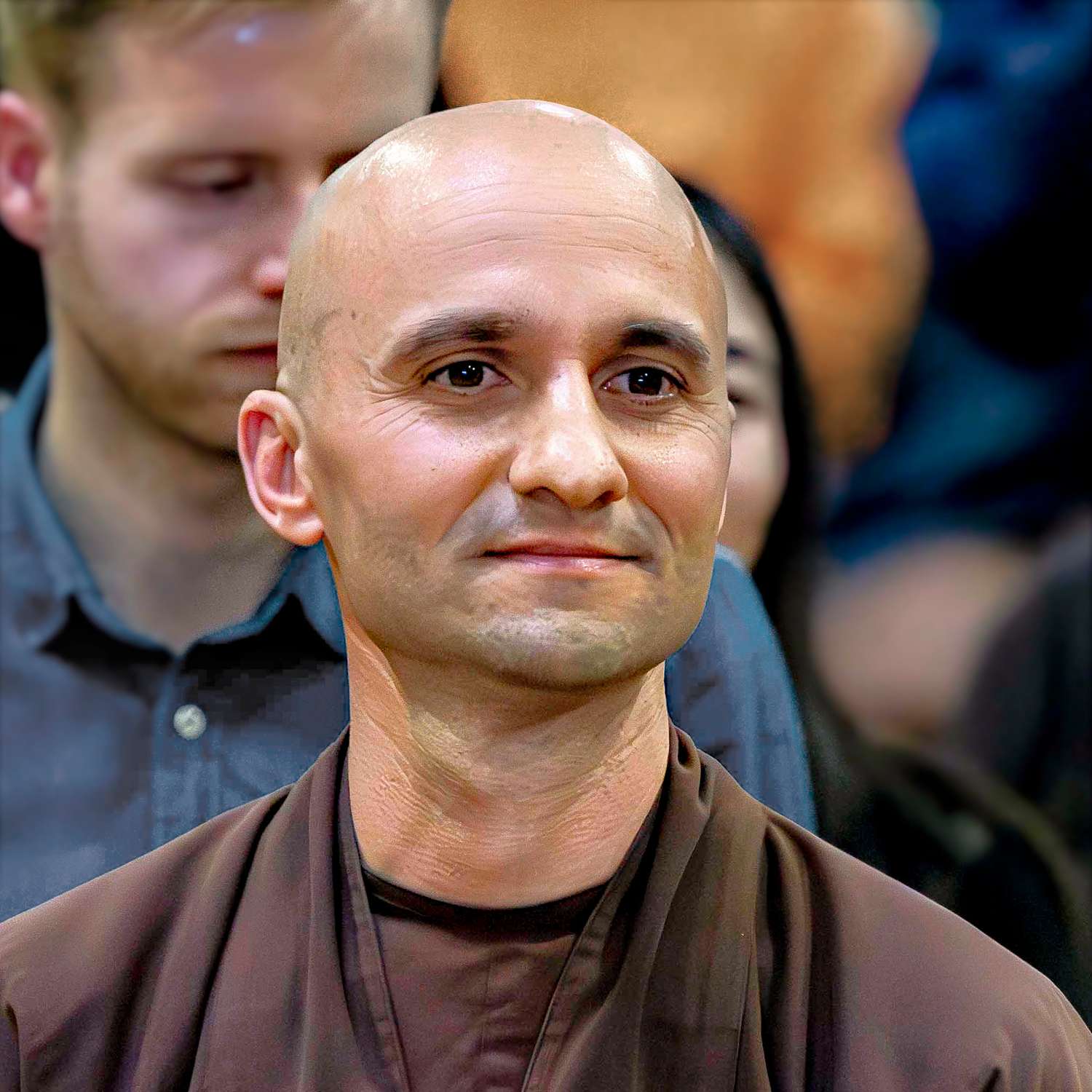
Br. Nhat Van (True Cloud of Oneness): Eleven years ago I had a strong event in my life that awakened me to spirituality. I attended my first spiritual retreat in Portugal. I was really impressed by the peaceful and loving environment, and how much compassion and understanding the monks had to face all the challenges of daily life. I stayed connected to monastics in different projects, like volunteering to teach basic English to children, giving support in a kind of ecovillage, helping in a vegan restaurant at an event, and attending yoga and meditation sessions. I felt a strong spiritual calling. There were signs during my life that pointed to monastic life, showing me that this is a right choice. When I found Thay, I felt a lot of peace and the practice gave me a lot of joy and stability. I came knowing that I would enter monastic life, it was a step of trust. I’m very happy to be here.
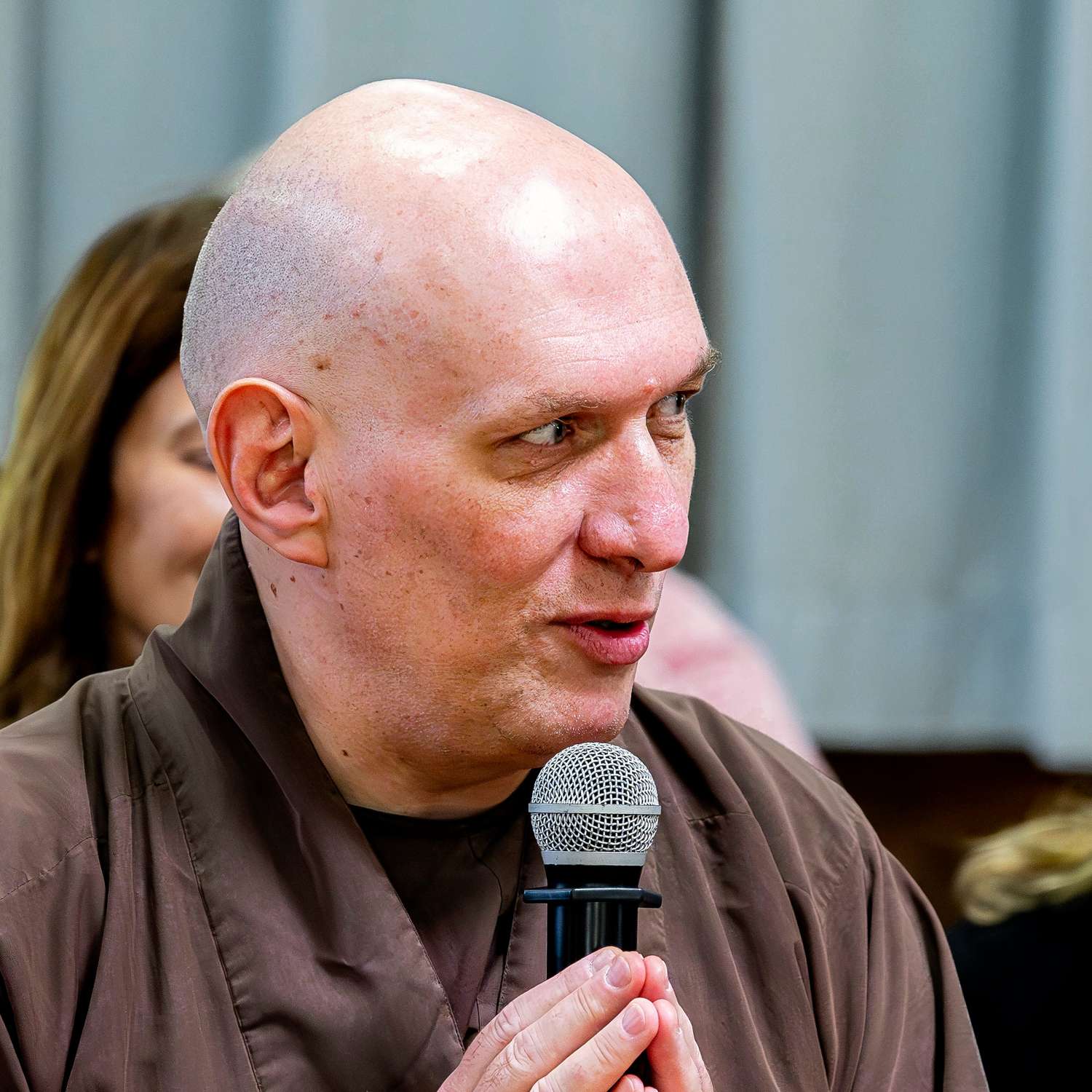
Br. Nhat Vu (True Rain of Oneness): I had practiced and even taught mindfulness for a long time already, trying to help people who suffered from chronic pain in hospitals and also employees in companies. Being totally on my own, I quickly got exhausted, because there was so much suffering. That is how I came to consider monastic life, in order to be part of a Sangha, experienced and deeply rooted, so that I could be stronger in the practice of love and understanding, develop joy and happiness and then be of a better support for more people.
Editorial team: There are people who feel that it’s easy to take refuge in the Buddha, the Dharma, but not the Sangha. Community life is quite challenging, especially for those coming from the West. How is your experience of living with the Plum Village community? How is your experience of sharing rooms with many people?
Br. Nhat Van: I grew up in a boarding school, which hosted hundreds of children, from age ten and only coming home for weekends. I was sleeping in a dorm of around 30 to 100 children. So I’m used to wearing uniforms, short hair, fine manners, ceremonies and living together (laughter). I made strong friendships for life there; it taught me brotherhood, sisterhood, and siblinghood. So sharing in a community is being at home completely for me and I am very happy living together.
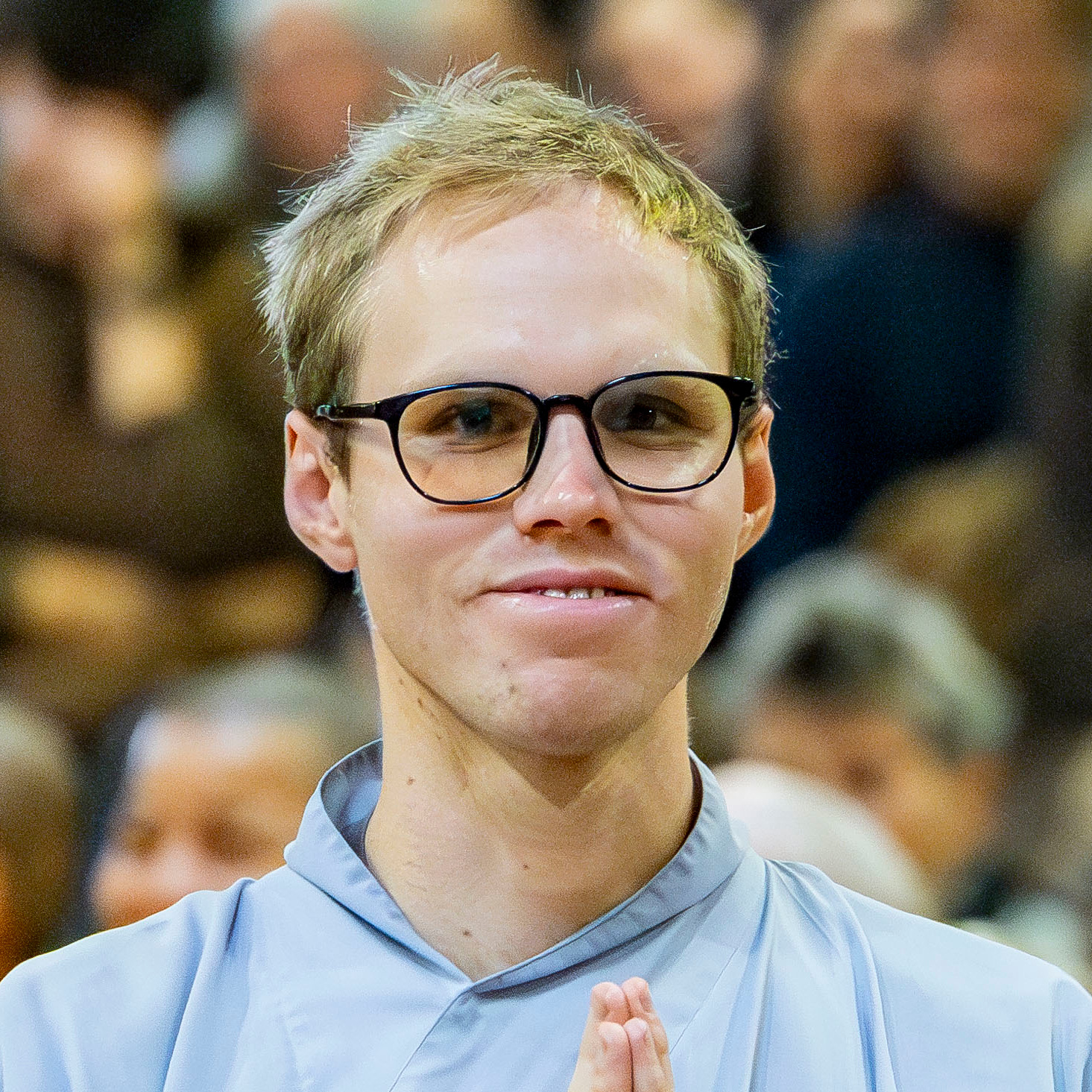
Br. Nhat Moc: Sweden is considered very individualistic in the minds of most people. I had a nice apartment just for myself, was very happy with it, but also felt very lonely. So last year, before coming here, I decided to live together with friends. Sharing rooms in Plum Village, I would sometimes appreciate having more space. I guess it will never be perfect. But one thing is for sure, this is much better than feeling lonely.
Br. Nhat Thanh: It was clear to me that sharing a room is not going to be easy, that it is going to be challenging. But there’s also a strong sense that it’s a condition for growth. I always try to keep this mindset, remembering that living together helps me improve my communication, helps me to learn to resolve conflicts, helps me to demand less from others.
On Days of Mindfulness, I sometimes feel overwhelmed by the amount of people present. I am learning to respect my limits and finding ways to be more spacious. We were asked in class how to take root in the Sangha. Do I want to have tea in every room, every day and get to know everyone? Or is it okay to let people approach me? I don’t need to always take the first step.
Sr. Don Hanh: I treasure living together as a very important part of the practice, because it helps me to open my heart, understand my sisters’ needs, and how to support each other. I am also learning to listen to myself, and to respect my limits. Especially on busy days in the summer, I have found going into the woods with my hammock to be most beautiful and refreshing. Oh, so good (laughter).
Sr. Dang Hanh: Ever since I was 11 years old, I’ve had my own room. What I know about myself is that I scan my surroundings, trying to look for ways that people might judge me, wondering “Am I doing a good enough job?” and “What are they thinking about me?” Being alone is one way that I protected myself. Coming into the Sangha has been a continual practice for me to transform this anxiety. It helps me to tell myself things like “Not everyone is interested in you and everything that you’re doing” or “People are quite busy with their own thoughts and don’t care that you are taking a nap or they do not care which book you are reading and they don’t have an opinion about which book you should be reading. They are busy reading their own book.” (Laughter) I’m surrounded by some of the kindest of people in the kindest of environments.
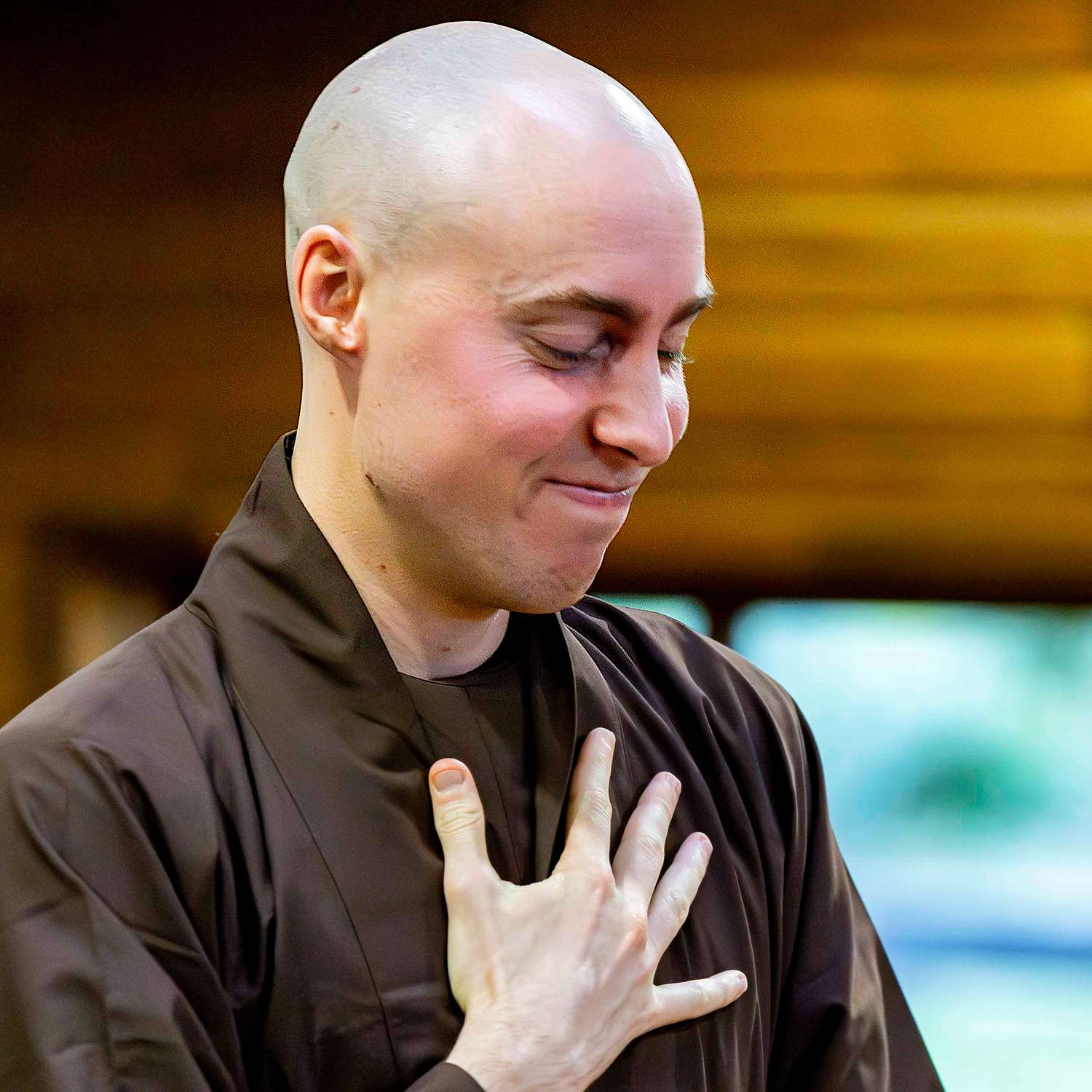
Br. Nhat Nguyen: As a child, I spent some time in a spiritual community and I think I always wanted to come back to that. Coming from Sweden, I’m very aware of how it is to be alone. It’s horrible, actually. From that point of view, I don’t understand how people manage not to live in a community.
Some of my difficulties living in a community revolve around how to behave socially. Do you say “Hello” or not? Is the other person ready for me to share my joy with? Living together is the best way for me to understand myself, who I am, how I behave. When I go to bed, I like to think about my roommates and extend love to them. Those things make me so happy.
Sr. Dieu Hanh: I clearly see how living in community and especially sharing a room supports my practice and makes me very happy. It is so much easier to practice in such a calm and mindful environment. When my blood sister saw my room, she said, “Now you’re sharing a room again.”
Of course, it takes some time to get to know everybody. I enjoy always having many new people to connect with, but it can also be a little stressful for me not knowing how to behave, since I do not want to disturb anybody. I also see my tendency to get used to this good environment quickly, and overly concentrate on some small little difficulty. Then, I remind myself about how good the conditions are, and if I cannot be happy here, where can I be?!
Br. Nhat Vu: After living alone for the last 20 years, I have to admit that the first year in a dormitory with seven people has been more than challenging. The noise, the rhythm, the feeling of not having my own refuge space — I had to unlearn and relearn everything. It is a good practice for my individualistic mindset. On the upside, sharing resources and being able to take refuge in the sangha is quite a relief and brings me joy.
Editorial team: We felt touched to hear from your families and friends who came for the ordination. How has being with your family been for you? Are there things that have changed in how you respond in family situations?
Br. Nhat Xuan: I can share about the relationship with my blood brother. I am 22, he is 25. We grew up sharing the same room and are quite close to each other, but it has not always been easy. I noticed over the last years practicing in the Plum Village tradition that my expectations for him diminished, e.g. wanting him to be or to do what seems right to me. I think these expectations make me suffer. Having less expectations really helps our relationship be enjoyable. I don’t want to wait ten years to enjoy a moment with my blood brother in the present moment.
Sr. Dang Hanh: After I had been practising for a few years back in the US I felt that I had a lot of transformation. I was listening to my mother more deeply. I was accepting my father more. I felt more space. Nowadays, when I call customer service, I make the representative laugh. I think I interact with people so differently now. I once asked my father, “Do you feel that I changed in the past year?” I felt we were not fighting or getting into arguments as much as before. And he just said, “No.” (Laughter) But I do feel a difference.
When I announced to my dad that I wanted to become a nun two years ago, it was a huge shock for him. He is an immigrant and worked really hard. He said, “You know, I’ve lived this way and I was successful, but I don’t really know if I would recommend it to anybody either. You’ve made me think back on the way that I thought was the right way to live. I don’t even know why it is the right way to live.” I don’t think my father would have had that kind of conversation with me if I hadn’t made this decision.
Br. Nhat Nguyen: One of the big reasons I like this tradition is because family is treasured. The practice of seeing my parents as a 5-year-old child has changed my life. Being in the sangha for one year helped me see them very differently. Because of my growing stability, I was brave enough to see their instability. Before, I would suppress this or become angry at them without understanding why. Something in me wanted them to be that stability for me, that would take care of me. But now, it feels like I don’t need that from them. I could see their instability and from that arose a lot of compassion and love. My mother didn’t have to be perfect. It healed the relationship with my mother. I’m very happy with this. My mother is so sweet.
Br. Nhat Van: My family couldn’t come, but they watched the ceremony online. In the beginning, they were asking, “When are you coming home?” But now I think they understand. I told them that I feel at peace here. They have always accepted my choices. I hope they can come next year and see that it is much better than they can imagine.
Br. Nhat Vu: My blood family is basically my son. He is well aware of my path since he grew up with me and I raised him according to the Five Precepts. So, he feels me. He can see me blooming in the sangha, in this new life. He told me last August: “To love – this is a cool job, Dad!”
